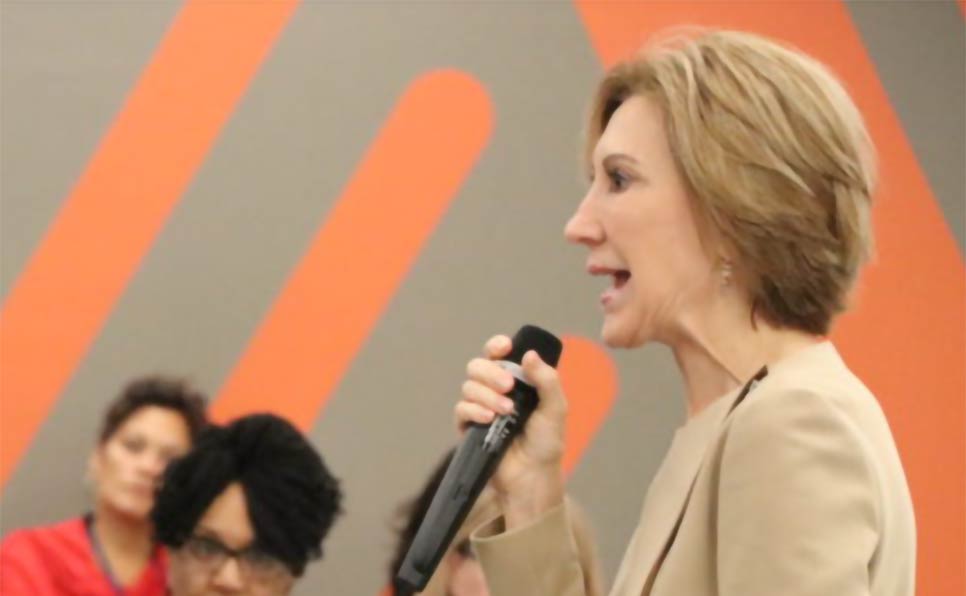Employers frequently ask, “If I could only ask one question, or look for one quality during a job interview, what would it be?”
There’s a pattern of questions and answers in combination with several qualities that propel someone into leadership that allows me to make assessments of people. Still, over the years I have found that one question is particularly revealing, and one quality is especially important.
Interviews, and the resumés that accompany them, are opportunities for every applicant to put her best foot forward. Applicants want– and need–to stress their accomplishments, their skills, and their understanding. Interviewers, who are looking for the best match for an opportunity, or the most potential to perform over time, are eager to discover how the applicants’ achievements, strengths, and insights translate into a “good fit” or a “value-add player.” While interviews are “getting to know you” opportunities, they are also usually all about the positives.
I recently conducted an interview for a very important position. The applicant was extremely impressive. Each of her answers was insightful and substantive. Her experience was rich and relevant. And yet, I learned the most about her when I asked: “Have you ever made a big mistake and what did you learn as a result?”
First, she thought about it. She didn’t have a pat answer. Second, she picked a real mistake, one that had real consequences. In other words, she didn’t dodge the question with some Pablum answer about “continuous learning” and she owned up to getting something that mattered wrong. She spent significant time discussing what she had done to recover from the mistake. She didn’t rush through her description of what she’d learned and how she’d applied it later.
Here’s what I learned. The applicant had the self-confidence to be honest, unguarded, and unrehearsed. She had the humility to acknowledge that she wasn’t just about all the things she’d gotten right. She had the self-awareness to be clear-eyed about why she’d made the mistake and the perspective to understand what important lessons she’d learned. She was clearly adaptable and innovative because her recovery strategy was sophisticated and successful. She didn’t obsess about how this had “made her look,” but instead focused on how to strengthen the team around her after this setback. As impressive as she’d been describing her accomplishments and strengths, she was doubly impressive in describing a real-life situation where she had come up short. As a leader, she didn’t fall apart or slip into denial. Instead, she picked herself up, learned the lesson and kept herself and her team moving forward.
Her answer also revealed that she is a person who sees possibilities. And if I had to choose just one quality to look for in a leader, seeing possibilities is it. Leaders see the possibility that mistakes aren’t final or fatal unless we allow them to be. They see that progress and learning can come from setback. They understand that recovery and forward momentum are possible even in the face of error and disappointment.
Some people come to a particular set of circumstances and see all the constraints, the hurdles, and the many things that cannot– or should not– be done. Leaders come to these same circumstances and see possibilities: what hasn’t been tried, what can be changed, what can be made better, what opportunities exist? Perhaps most important of all, leaders see possibilities in themselves and those around them. They know there is always untapped potential in every individual and every team for greater energy, creativity, commitment and impact. Leaders see the possibility that things can be better.
A leader’s job is to solve problems, change the order of things for the better, and unlock potential in others. A leader’s job is therefore always fraught with risk and mistakes are inevitable. (Indeed, the necessity of risk-taking and the inevitability of mistake-making are what cause many would-be leaders to fall back into being managers instead.) A leader must know when risks are necessary, understand what mistakes have been made, learn from those mistakes, and then move beyond them in a way that strengthens, not weakens, a team. To do all this, a leader sees the possibility for progress and higher performance. And forward momentum–in any set of circumstances–requires a leader to see possibilities in every set of circumstances.
Carly Fiorina needs no introduction. She is a Unicorn. Her record as a CEO, presidential/vice presidential candidate is well documented. Her leadership skills are impressive. She works as an executive coach with corporations and startups and her preferred topic is Leadership. We are thrilled that she is sharing THE LEADER’S POINT OF VIEW. Send questions or comments at editor@womensbiz.US attention Carly.

